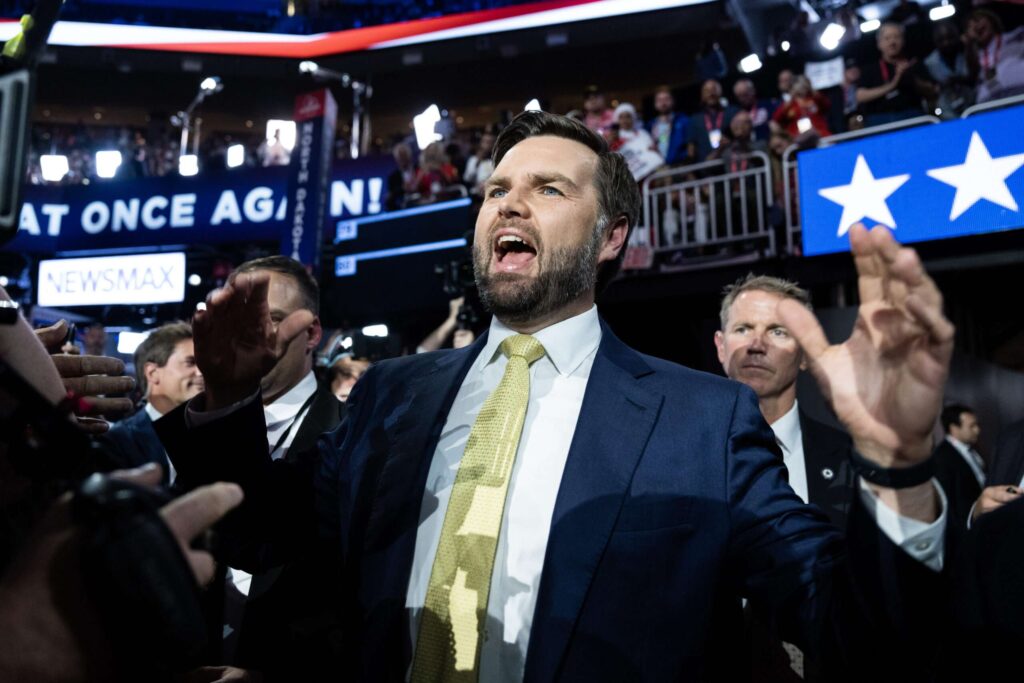

To put it lightly, I am not a fan of Republican Vice Presidential Candidate J.D. Vance and the “national conservative” ideology he espouses. But his 2021 statement that childless adults should pay higher tax rates sparked a backlash that was largely a matter of framing. It highlights how people can have very different reactions to similar policy proposals, depending on how they are described.
Many people forget about childless people already Pay higher taxes than parents with the same income. Under current law, most parents are entitled to the child tax credit. My wife and I have two children and can apply for assistance as long as we qualify (under current law, as long as our family income is under $400,000). When we receive tax credits, we end up paying less in taxes than a childless couple with the same income.
The child tax credit has broad bipartisan support. Many Democrats believe it should actually be larger. Why is it so popular? Because its purpose is to give parents lower tax rates, not to make people without children pay higher tax rates. Describe it in these terms, almost everyone loves it!
On the other hand, when Vance says that childless people should pay higher taxes and lashes out at “childless cat ladies,” he comes off like an intolerant, misogynistic weirdo who a lot of people hate . Maybe that’s what he deserves; I won’t shed a tear for him. But most of the same people are happy to support roughly the same policies if described in different terms.
Lower tax rates for parents and higher tax rates for childless adults are two sides of the same coin. One inevitably implies the other. The different responses to these two descriptions are the result of a “framing effect”: perceptions of policy ideas are driven by rhetoric rather than substance.
In a world where voters are well informed about policy and carefully evaluate alternative ideas, framing effects are less important. But in reality, most voters are intellectually ignorant of policy and are often unable to evaluate the information they are given. Therefore, framing effects often have a large impact.
If I were to advise Vance (don’t worry, this will never happen!), I would tell him to stop talking about the cat lady and say something like this:
“I want to provide greater tax breaks for America’s financially strapped parents so they can better support their children. Parents and children alike need to be freed from heavy taxes and high prices. After all, children are our future! ” Maybe combine that with a commercial where Vance appears with a group of mothers and kisses some babies.
Is the child tax credit actually a good idea? Should we increase it? I’m still not sure. But looking at these positive aspects (as a tax break for parents, rather than forcing childless people to pay higher taxes), it does sound good to most people.
One could tell a similar story about Vance’s advocacy of giving parents extra votes. He described it as forcing people without children to “Facing the consequences and reality” rather than getting “nearly the same voice” in our democracy. This sounds terrible and predictably generates negative reactions. But the same idea could also be described as giving parents a greater say in their children’s interests by allowing parents to represent them more effectively. In fact, this is exactly how left-libertarians like Harvard political scientist Paul Peterson and political commentator Michael Kingsley defend extra parental voting (Peterson would give parents the option of letting their children vote themselves) if parents Believe that their children can do it).
Rather than seeing the idea as punishment for childless people, they gave children’s interests greater sway. But, like relative tax rates, the two are just different ways of describing the same thing. Since political influence is a zero-sum game, giving more votes to Group A will inevitably reduce the electoral weight ratio of Groups B, C, and D.
I don’t believe parents should get extra votes for their children. On the other hand, I tentatively defend the idea of letting educated kids (those with a level of political knowledge at least as high as the average adult voter) vote for themselves. I think this will go some way to improving the quality of political decision-making. But I must admit that this would disempower adult voters politically. When I argued the point, though, I didn’t express it that way.
The idea came to me before I had children of my own. But my nine year old is now a huge fan!
My point here is not to defend any particular voting scheme but to highlight the framing effect. Peterson, Kingsley and others did not receive the same backlash as Vance, largely because they framed the same idea in more positive terms: increasing the voices of parents and children, not reducing the power of the childless.

